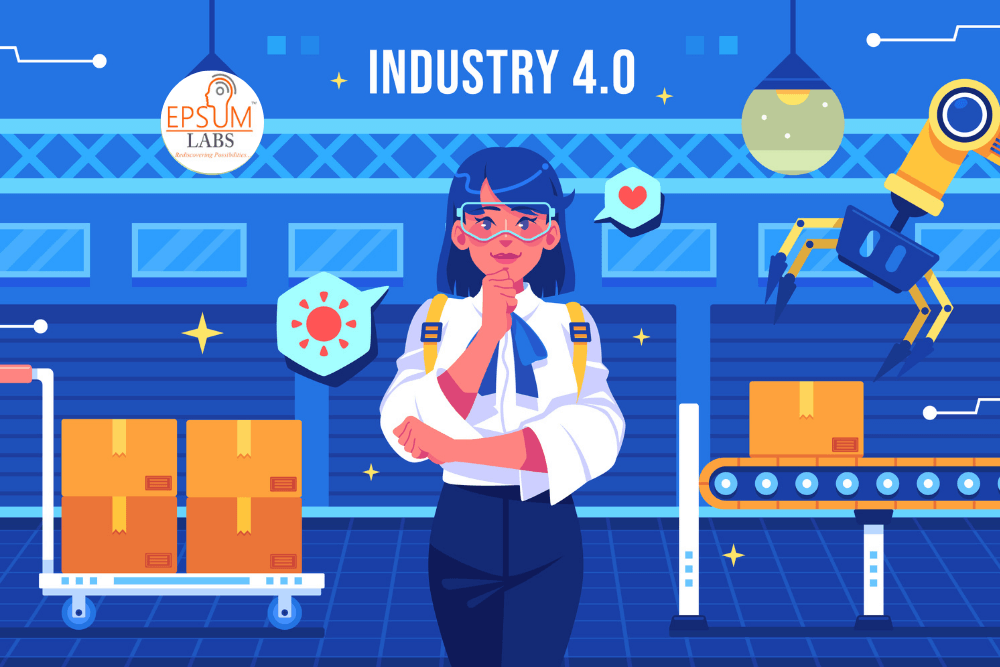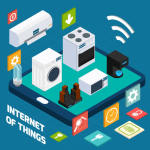In our current society, the factor of automation is a crucial moving aspect of all industries, as it enables processes to be completed in a faster and more efficient manner.
We are currently experiencing yet another phase of the industrial revolution, which is primed by technologies such as process automation, artificial intelligence (AI), the Internet of Things (IoT), robotics, and others.
Continued progress and application of these technologies change the operation of industries for the better, as it enhances their productivity and efficiency.
Contents
The Evolution of Factory Automation and Industry 4.0
Industrial automation has been the enabler of operational and productivity efficiency in manufacturing for years now. The culture of industrial automation dates back to the era of primary mechanisation, where manual work was supplemented by hydraulic lifts.
In the modern world, this industry has matured into a range of cutting-edge connected devices powered by artificial intelligence, connectivity, and other enhancement tools.
The essence of industrial automation is to employ all available control resources of machines, sensors, actuators, processors, networks, and all robots with the aim to enhance production, increase efficiency, and encourage improvement in the manufacturing processes.
However, the technologies underlying automation are advancing rapidly, necessitating changes in how automation is implemented.
A major leap in industrial automation development has been achieved in such areas as software interoperability, cloud-native automation solutions, connectivity, and artificial intelligence.Integrated modern systems support the idea of communication in real time, performing predictive maintenance, and making better decisions.
This change requires entirely new approaches to information gathering and the development of new automation applications that are more intelligent and can scale.
Technologies on the rise, such as artificial intelligence and edge computing, are becoming integral to industrial automation today.
Looking into the future, there’s even greater opportunity owing to smart factories and autonomous factory systems turning capitalism on its head.
Let Us Trace Our Way Back to the Age of Smart Automation
Every stage of the revolution in industry has always been accompanied by automation. Although automation was a buzzword developed in the late 20th century, it has a much earlier history.
The first industrial revolution witnessed the application of steam power and mechanisation in production, which was the initial step towards automation, with water-powered spinning mills, automated looms, and grain milling machines.
By these innovations, manual work was greatly decreased, and the efficiency of production was considerably increased.
The beginning of the second industrial revolution saw the introduction of electricity and automated assembly lines. This meant that activities such as automotive manufacturing could now be mass produced.
An interesting case is that of Ransom E. Olds—he was the first to use an automated assembly line back in 1901; this was long before Henry Ford managed to scale the concept after refining it.
In 1947 Ford decided to establish an automation department, which further advanced and diversified automated methods of production.
The introduction of electronics, computers, and early versions of the Internet are attributed to the third industrial revolution, or, as it is called, the digital revolution.
This period saw the birth of programmable logic controllers and the computer-aided design systems, which changed the approach in product designing and manufacturing.
Are you looking for Industrial Automation Services
During this industrial revolution, nuclear energy and modern telecommunications also played essential roles in transforming industries.
Currently, we are participating in the industrial revolution 4.0, or Industry 4.0. This era is an expansion of its predecessors, developing upon the basic features that they laid out but with the enhancement of the IoT, AI, big data, machine learning, and advanced robotics.
A perfect example would be Amazon’s fulfilment centres, where robots assist humans with order processing, inventory management, and shipping logistics. Systems, processes, and devices are now able to function with minimal human interaction, enabling the development of highly autonomous smart factories.
In this modern world, smart factories are equipped with a fully digitalised manufacturing ecosystem that is able to support a fully interconnected environment for all levels of production. The combination of cloud-based systems, IoT, and real-time data analytics is enabling smart factories to be able to be agile and adaptive to calls.
This level of intelligent automation not only optimises efficiency, but it also allows industries to become more flexible in their services, allowing them to provide better response to the market and their customers. The convergence of automation and human production is becoming closer.
And smart factories are undoubtedly capable of altering paradigms within the manufacturing sector.
The future looks exciting, with the potential to transform everything we have become accustomed to in the production sector and beyond.
The Influence of Industry 4.0 on Contemporary Enterprises
Business sector 4.0 is altering the manner in which businesses function, changing existing models of production, and integrating processes that are more responsive and client-centric.
This new era of industry enables industries to be responsive to rapid market shifts, which existing traditional (old) systems of production find extremely difficult to do.
Industry 4.0, using interconnected systems and smart devices, makes it viable for businesses to control and monitor operations at the shop floor and clients’ locations every single minute of the day.
These technologies assist in monitoring production in which any disruptions, delays, or anything that interferes with operational efficiency is reported on the spot.
Tools of predictive maintenance combine data from various machinery to reduce complexities by using proactive measures to avert failure.
In addition, sophisticated monitoring management systems provide information on milestones that measuring efficiency entails and alarms informing managers of wastage, bottlenecks, and loss of efficiency or poor productivity.
Companies can then use this information to alter procedures, manage work better, or take other steps to prevent inefficiencies. Consistent monitoring of performance changes equips organisations with the vision and insight needed to remain competitive.
In conclusion, Industry 4.0 is targeted at making companies more flexible, quickly, and with an eye on what the customer needs, a win in today’s changing business environment.
Charting The Course For Automation Of The Future
Industrial automation has certainly come a long way today compared to where it began, navigating through formidable strides of connectivity, interoperability, and artificial intelligence (AI). Currently, all of us are fully immersed in the Fourth Industrial Revolution.
Contemporary manufacturing experiences interconnected machines that enable remote supervision, predictive maintenance, and more informed decision-making. As the world advances technologically, the trajectory of industrial automation seems even more fascinating.
Industries have started to evolve due to the emergence of smart factories and semi- or fully autonomous systems, and this gives a strong advantage to the industries that use such modernization. Ready to take your business to the next level?
Learn how Epsum Labs Pvt Ltd can help you in your digital transformation journey. Reach out to our experts to learn how you can open new doors for your enterprise.




